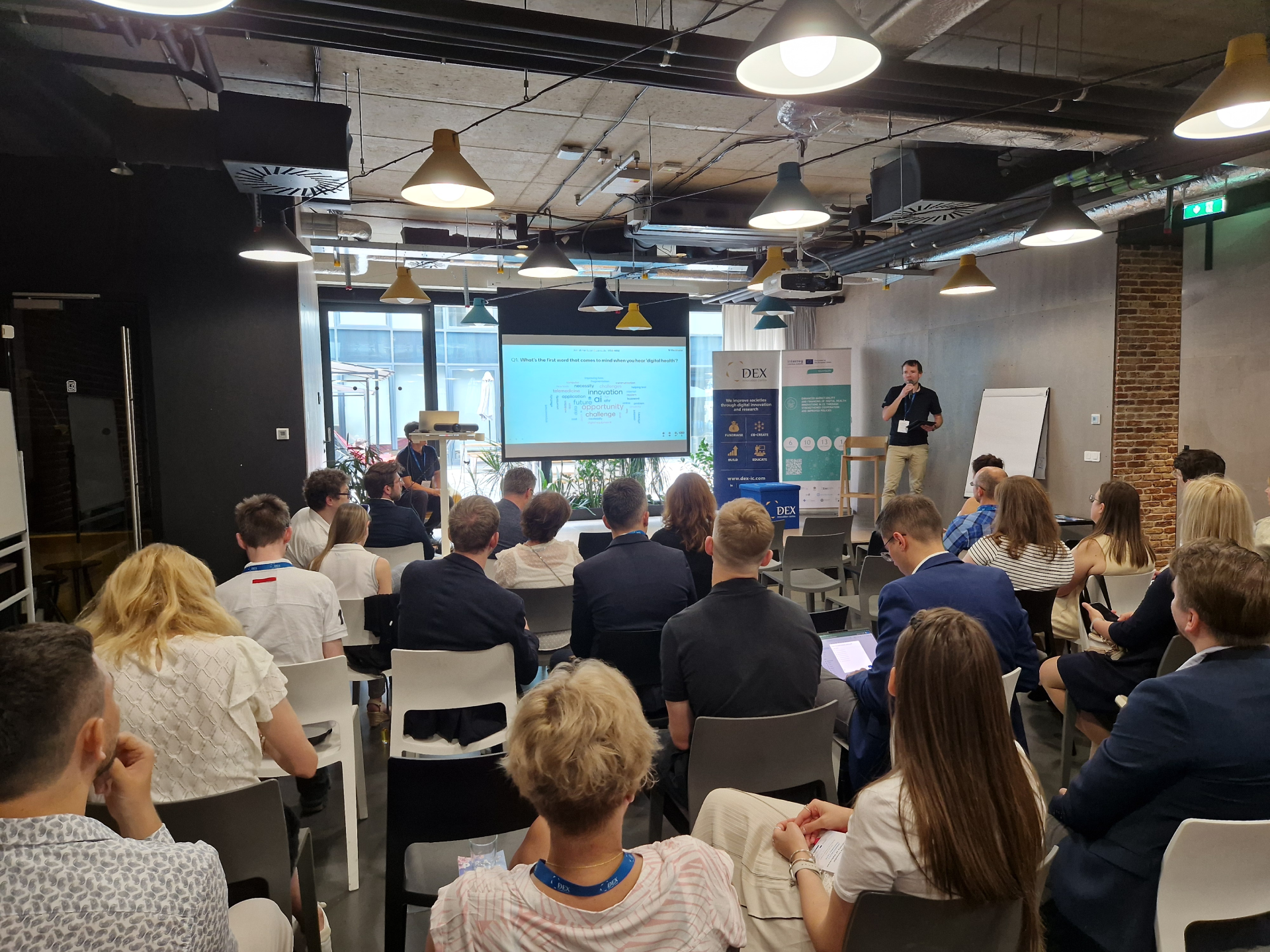“For me as a startup founder, it’s crucial to be part of events like this. Seeing different perspectives on how to bridge the gap between hospitals and innovators was incredibly valuable,” said Lenka Šomvárska, CCO of Vitadio, who shared her experience in getting digital therapy reimbursed through Germany’s DiGA system in her keynote presentation. Her talk emphasized the importance of high-quality clinical data, regulatory readiness, and collaboration with physicians and payers.
Testing Digital Health Solutions in Real Clinical Environments
Startups like VR Vitalis and Predicting Health tested their solutions directly in hospitals, allowing them to fine-tune not only their products but also their business strategies. “It helped us validate our entire go-to-market approach,” summarized Jakob Pieber of Predicting Health, whose tool uses artificial intelligence to identify patient risks such as falls or delirium. The opportunity to work directly with clinical staff gave teams immediate insight into how their technologies perform under real-world conditions.
Innovative Solutions for Critical Care and Neurological Monitoring
VR Vitalis tested its virtual reality rehabilitation solution focused on patients with neurological conditions. “We’re very grateful to the DIGIVITALITY programme, it was an excellent experience for us. We established strong collaboration with the hospital in Martin, where our system was tested with multiple sclerosis patients. The results of the case study were truly encouraging,” said Hana Starečková, International Trade Specialist at VR Vitalis. Bindworks presented its ZUNI tool – an intuitive app for effective documentation and analysis of chronic wounds, aimed at streamlining care and improving patient comfort. “Our goal is to simplify the work of healthcare professionals while delivering better care to patients. DIGIVITALITY allowed us to validate that our solution can be deployed effectively across various healthcare settings,” noted a Bindworks representative.
Keynote speaker Daren Wilson emphasized that initiatives like the DIGIVITALITY programme help innovations survive and reach the patients who need them. “Having a great idea is not enough. It needs to be validated, adjusted to real-world needs, and integrated into the broader healthcare system. Only then do innovations become truly valuable,” said Wilson. He also highlighted the importance of building strong partnerships between startups and healthcare institutions to ensure lasting impact.
Stakeholders Unite to Tackle Systemic Barriers
The closing panel, titled “Collaborative Insights: Bridging the Gap Between Digital Startups and Clinical Implementation,” connected representatives from hospitals, startups, and investors in a discussion on how to realistically overcome barriers and implement innovation in practice. The panel covered the unique characteristics of public healthcare systems in different countries, the need for clinical testing support, the importance of data security, and the challenge of ensuring sustainable innovation financing.
Daniel Kulig, investor, startup mentor, and expert advisor to the programme, also joined the panel. “The most important thing is to start from the ground up: identify a real problem, validate that it truly exists, and only then look for a solution. Once you have that, you need to implement it in real-world conditions, with the support of partners and the entire ecosystem,” Kulig emphasized.
